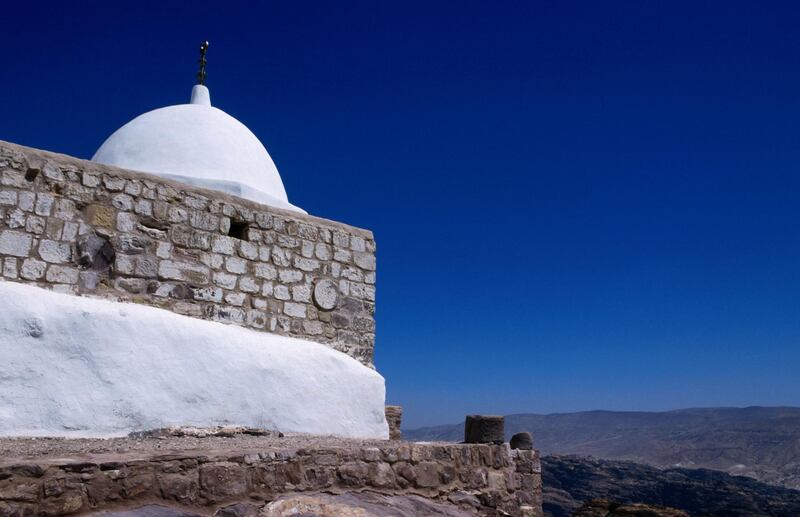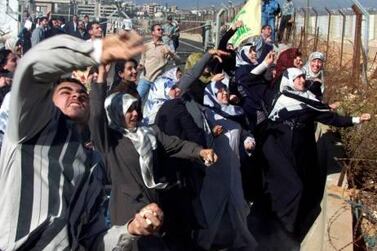Jordan has closed an ancient shrine near the southern archaeological site of Petra after Jewish tourists were filmed praying at the site.
The photographs and footage of the incident angered Jordanian politicians and citizens.
In reaction to the incident, Jordan's Minister of Endowment and Islamic Affairs Abdel-Nasser Abul Bassal closed the shrine. He said that no one would be allowed to enter without permission from the ministry, a statement from the Cabinet said.
.
"I call on the minister of awqaf [Mr Abul Bassal] to resign, it is not enough that he closed the mosque and took its keys," one politician, Saud Abu Mahfouz said.
Mr Abul Bassal said his ministry would open an investigation into the incident and hold those responsible accountable. It remains unclear if the tourists are still in Jordan.
The site is on a mountain and access involves a long hike. The photos and video were published by Jordanian and Israeli media outlets but it was unclear how they obtained them.
Local Jordanian drivers transported the tourists up Mount Harun to the shrine. The tourists blew shofars, a Jewish horn blown for religious purposes, and raised a Torah scroll, the ancient Jewish religious text.
The site is believed to be the burial site of Aaron, the brother of Moses. The Hebrew name for Aaron is Harun. Some Jordanians believe that he was actually buried in the Sinai peninsula in Egypt.
Even though Israel and Jordan have formal relations, after signing a peace treaty in 1994, public opinion remains firmly against Israelis, particularly on religious matters.
Jordan is the custodian of the Haram Al Sharif compound and regularly protests Israeli violations at the site, such as ultrareligious Jews entering the site to pray, an inflammatory move that threatens to spark street protests by Palestinians.
Ultra-religious Jews also pray at the Tomb of Joseph under police protection near the occupied West Bank city of Nablus.
Jordanians and the Palestinians view such Israeli moves with suspicion, believing them to be attempts to change the status quo and tie the sites to Judaism.






